Filter by
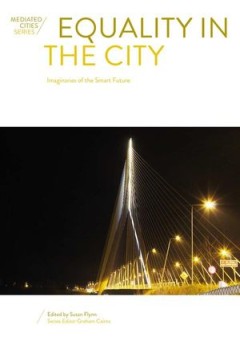
Equality in the City : Imaginaries of the Smart Future
This collection critiques the rhetoric of ‘smart cities’. It seeks to engender a timely debate about what future cities might look like and what their concerns should be. Using a multi-disciplinary perspective, it features acclaimed scholars whose work investigates the proposed networked digital technologies that ostensibly affect planning policies, control infrastructures and deliver and m…
- Edition
- -
- ISBN/ISSN
- 9781789384659
- Collation
- -
- Series Title
- -
- Call Number
- -
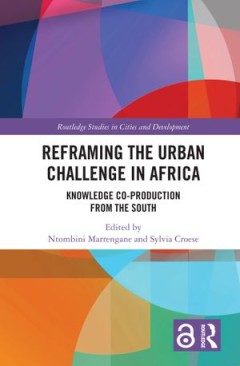
Reframing the Urban Challenge in Africa
This book explores the changing dynamics and challenges behind the rapid expanse of Africa’s urban population. Africa’s urban age is underway. With the world’s fastest growing urban population, the continent is rapidly transforming from one that is largely rural, to one that is largely urban. Often facing limited budgets, those tasked with managing African cities require empirical evid…
- Edition
- -
- ISBN/ISSN
- 9781000333534
- Collation
- -
- Series Title
- -
- Call Number
- 320.17 REF r
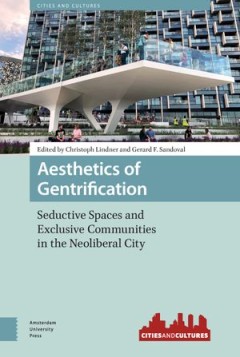
Aesthetics of Gentrification Seductive Spaces and Exclusive Communities in t…
Gentrification is reshaping cities worldwide, resulting in seductive spaces and exclusive communities that aspire to innovation, creativity, sustainability, and technological sophistication. Gentrification is also contributing to growing social-spatial division and urban inequality and precarity. In a time of escalating housing crisis, unaffordable cities, and racial tension, scholars speak of …
- Edition
- -
- ISBN/ISSN
- 9789048551170
- Collation
- -
- Series Title
- -
- Call Number
- -
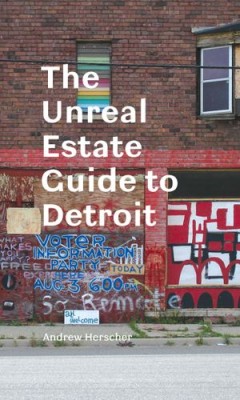
The Unreal Estate Guide to Detroit
Intense attention has been paid to Detroit as a site of urban crisis. This crisis, however, has not only yielded the massive devaluation of real estate that has so often been noted; it has also yielded an explosive production of seemingly valueless urban property that has facilitated the imagination and practice of alternative urbanisms. The first sustained study of Detroit’s alternative urba…
- Edition
- -
- ISBN/ISSN
- 9780472900282
- Collation
- -
- Series Title
- -
- Call Number
- 720 HER u
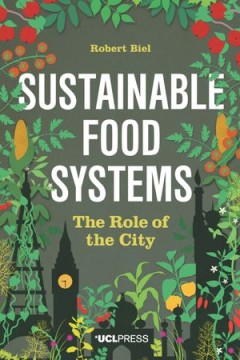
Sustainable Food Systems
This book, by a leading expert in urban agriculture, offers a genuine solution to today’s global food crisis. By contributing more to feeding themselves, cities can allow breathing space for the rural sector to convert to more organic sustainable approaches. Biel’s approach connects with current debates about agroecology and food sovereignty, asks key questions, and proposes lines of future…
- Edition
- -
- ISBN/ISSN
- 9781911307099
- Collation
- -
- Series Title
- -
- Call Number
- -
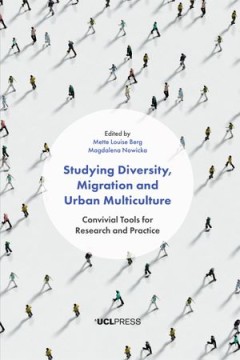
Studying Diversity, Migration and Urban Multiculture
Anti-migrant populism is on the rise across Europe, and diversity and multiculturalism are increasingly presented as threats to social cohesion. Yet diversity is also a mundane social reality in urban neighbourhoods. With this in mind, Studying Diversity, Migration and Urban Multiculture explores how we can live together with and in difference. What is needed for conviviality to emerge and what…
- Edition
- -
- ISBN/ISSN
- 9781787354784
- Collation
- -
- Series Title
- -
- Call Number
- -

Studying Diversity, Migration and Urban Multiculture
Anti-migrant populism is on the rise across Europe, and diversity and multiculturalism are increasingly presented as threats to social cohesion. Yet diversity is also a mundane social reality in urban neighbourhoods. With this in mind, Studying Diversity, Migration and Urban Multiculture explores how we can live together with and in difference. What is needed for conviviality to emerge and what…
- Edition
- -
- ISBN/ISSN
- 9781787354784
- Collation
- -
- Series Title
- -
- Call Number
- 307.2 STU s
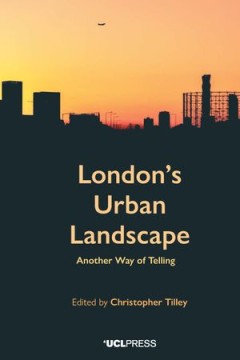
London’s Urban Landscape
London’s Urban Landscape is the first major study of a global city to adopt a materialist perspective and stress the significance of place and the built environment to the urban landscape. Edited by Christopher Tilley, the volume is inspired by phenomenological thinking and presents fine-grained ethnographies of the practices of everyday life in London. In doing so, it charts a unique perspec…
- Edition
- -
- ISBN/ISSN
- 9781787355583
- Collation
- -
- Series Title
- -
- Call Number
- 307.2
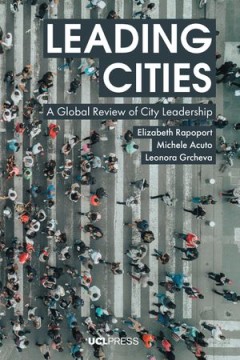
Leading Cities
Leading Cities is a global review of the state of city leadership and urban governance today. Drawing on research into 202 cities in 100 countries, the book provides a broad, international evidence base grounded in the experiences of all types of cities. It offers a scholarly but also practical assessment of how cities are led, what challenges their leaders face, and the ways in which this lead…
- Edition
- -
- ISBN/ISSN
- 9781787355453
- Collation
- -
- Series Title
- -
- Call Number
- 307.2 RAP l
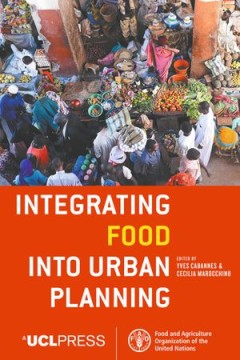
Integrating Food into Urban Planning
The integration of food into urban planning is a crucial and emerging topic. Urban planners, alongside the local and regional authorities that have traditionally been less engaged in food-related issues, are now asked to take a central and active part in understanding how food is produced, processed, packaged, transported, marketed, consumed, disposed of and recycled in our cities. While there …
- Edition
- -
- ISBN/ISSN
- 9781787353763
- Collation
- -
- Series Title
- -
- Call Number
- 320.17 INT i
 Computer Science, Information & General Works
Computer Science, Information & General Works  Philosophy & Psychology
Philosophy & Psychology  Religion
Religion  Social Sciences
Social Sciences  Language
Language  Pure Science
Pure Science  Applied Sciences
Applied Sciences  Art & Recreation
Art & Recreation  Literature
Literature  History & Geography
History & Geography